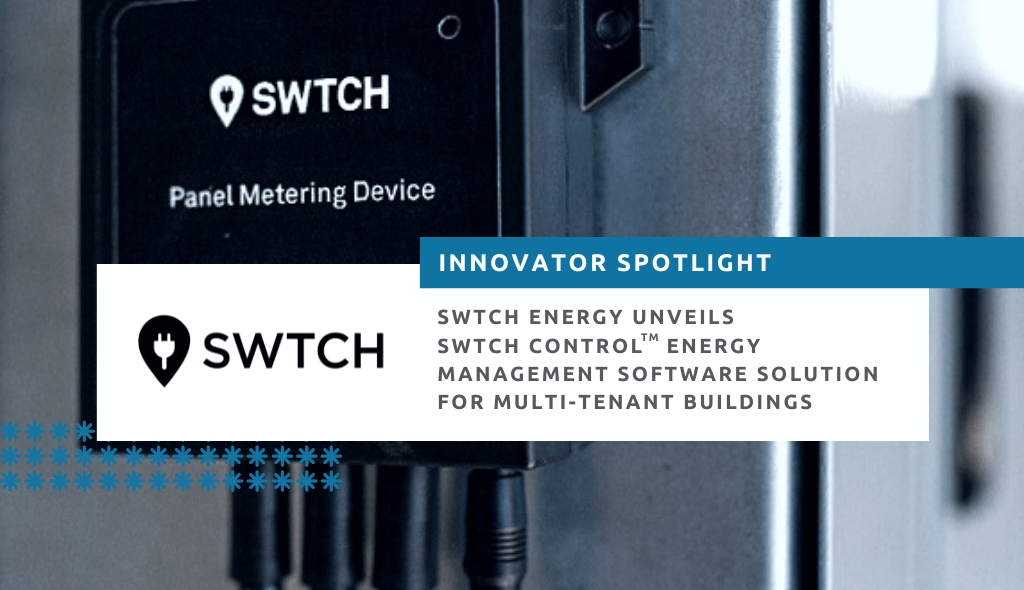SWTCH Energy Inc. has unveiled SWTCH Control, a software solution that dynamically adjusts the energy being used by electric vehicle (EV) chargers based on a building’s real-time energy consumption.
The company says it will allow property managers to install and manage up to 10-times more EV chargers without the need for a costly infrastructure investment in a release.
“So for building owners that want to add EV charging to their buildings, either for regulatory regulations purposes, or because their tenants want to have EV charging, they might be faced with the prospect of having to revamp their whole electrical infrastructure . . . in order to be able to accommodate a much larger electrical capacity,” Sam Bordenave, SWTCH’s head of finance and strategy told SustainableBiz.
“SWTCH Control is a load management solution that enables building owners to deploy EV charging without needing to upgrade their electrical infrastructure,” Bordenave added.
Headquartered in Toronto with offices in Boston and Brooklyn, SWTCH provides EV charging solutions, which includes software and chargers, for multifamily and commercial properties across North America. SWTCH currently manages over 10,000 chargers on its network, and has served over 500 real estate customers to date.
SWTCH Control
SWTCH Control monitors energy use in multi-residential buildings and allocates charging to periods of lower demand. The company states it will enable all EVs to be fully charged by the morning while never exceeding the electrical capacity of the building.
In the same release, SWTCH CEO Carter Li states more than a third of North Americans live in multi-tenant properties.
According to Bordenave, SWTCH Control is able to save a building anywhere between $20,000 to $50,000 in infrastructure upgrades.
“We’re building off of existing software features that we had before. Over the past couple of years, we’ve built together these features. And then over the past six months, we’ve been rolling this out and making sure that everything is smooth,” he said.
“So buildings in Ontario, in Vancouver, in Chicago (and) L.A. But we’ve already implemented this feature and software in quite a few buildings.”
In a release, SWTCH mentions U.S. states including California, Massachusetts, Colorado, Oregon and New York that have proposed EV charging readiness mandates at new multi-residential buildings. Canadian provinces such as British Columbia and Quebec have already enacted similar regulations.
Rob Stein, the president of Skyline Energy, and Duncan Wlodarczak, the chief of staff of real estate developer Onni Group, praised Control in the same release.
As a software solution, SWTCH Control is being offered as part of SWTCH’s EV charger installation package. It is also an option for SWTCH’s existing customers who want to add to their existing installations despite hitting a threshold in their infrastructure.
Depending on the building, there may be a small cost that will come from the installation of additional sensors.
SWTCH’s future plans
In February 2023, SWTCH partnered with AutoGrid to integrate 250 EV chargers in multi-tenant properties into an active demand response program with a Canadian utility, which it claimed was a first in North America. It differed from the work the company is doing with buildings via SWTCH Control, in what Bordenave called “two levels of optimization.”
Bordenave sees the deployment of SWTCH Control in a majority of the company’s installations. SWTCH’s goal is to have all of its chargers on some sort of utility program within two years.
“That’s definitely something where we want to really work to integrate these two pieces of software and these two layers so that you can have both an optimization at the building level, but also at the grid level. That’s definitely an area of focus of our R&D team,” Bordenave said.
The global demand response market is expected to grow by approximately $1.4 billion between 2020 and 2025, led by North America, according to an August 2022 report by Technavio.
The company also recently joined the White House’s EV Acceleration Challenge, having committed to deploying 20,000 chargers in majority multifamily buildings by 2024.






